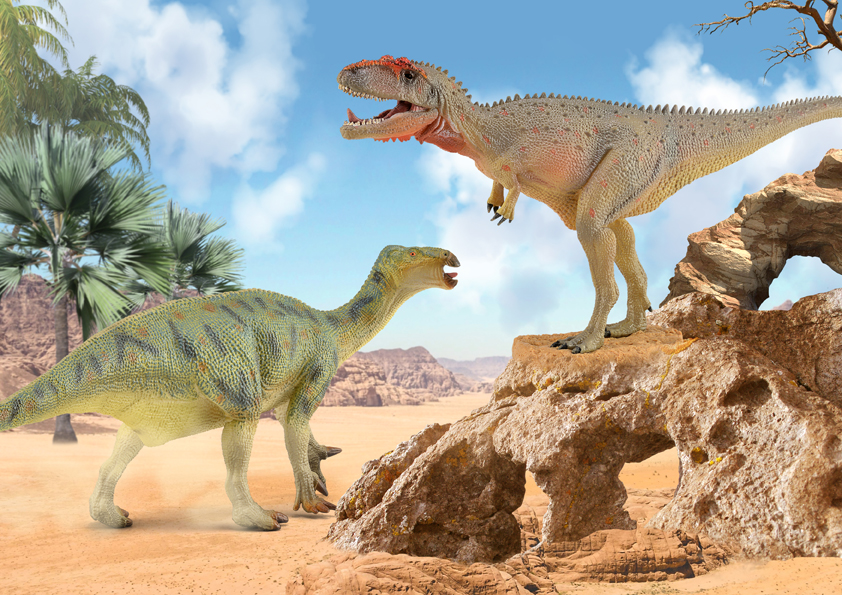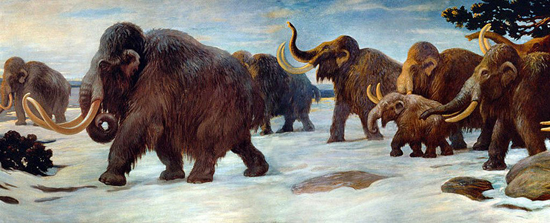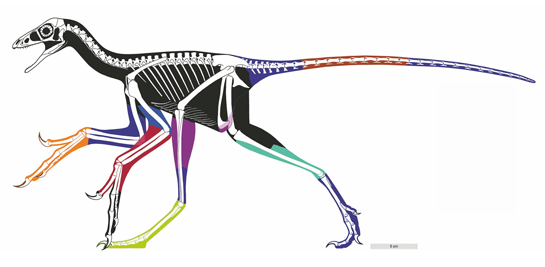Everything Dinosaur team members were asked by a Radio Two researcher to provide the questions for the “midnight mastermind” slot on the OJ Borg early morning radio show when the subject the presenter was being quizzed upon was dinosaurs!
We were asked to propose six questions from which the researcher would select three to test the knowledge of their colleague.
Questions About Dinosaurs
- The word “dinosaur” or to be technically correct the “Dinosauria” was first coined by a British scientist in the early 1840s – who was it?
It was anatomist and biologist Richard Owen, later Sir Richard Owen, a Lancastrian who had been given the task of making sense of the giant reptile fossils that had been found and studied over the preceding couple of decades. Richard Owen named and described several dinosaurs including the first long-necked dinosaur (sauropod) and he went onto help establish what we now know as the London Natural History Museum.
- What does the term dinosaur actually mean?
Dinosaur is from the ancient Greek (deinos) which means “terrible” or “fearfully great” and from (sauros) which means lizard, so you have “terrible lizards” or “fearfully great lizards”. However, dinosaurs are not closely related to lizards.

To view models and replicas of “fearfully great lizards”: CollectA Deluxe Dinosaur and Prehistoric Animal Models.
Predator
The radio presenter did really well in a previous “midnight mastermind” in which listener Neil asked questions about the film “Predator”, so we thought it would be a good idea to set him question about a dinosaur which many people believe was the ultimate predator – Tyrannosaurus rex.
- Tyrannosaurus rex is perhaps the most famous dinosaur of all, in what year was T. rex formally, scientifically described?
T. rex was first scientifically described back in 1905, by the American palaeontologist Henry Fairfield Osborn. The first T. rex bone was described in 1883 and this was referred to as Monospondylus gigas (giant, thin vertebrae), thankfully scientific convention was overruled and Tyrannosaurus rex became the accepted scientific name.
The Mesozoic
The non-avian dinosaurs died out around 66 million years ago (mya) during a mass extinction event that marked the end of the Mesozoic Era.
- Dinosaur fossils are found in rock formations that were laid down during three geological time periods – one of these periods is called the Jurassic – hence the movie “Jurassic Park” but what are the names of the other two geological periods associated with the dinosaurs?
The two other geological time periods associated with the dinosaurs are the Triassic (251 mya – 201 mya) and the Cretaceous (145 mya – 66 mya). The first dinosaurs evolved in the Late Triassic perhaps as early as 235 million years ago. The non-avian dinosaurs became extinct at the end of the Cretaceous 66 mya.
- What was the name of the first dinosaur to be scientifically described?
Megalosaurus was the first dinosaur to be scientifically described. It was named in 1824 by an English clergyman and geologist William Buckland. The Reverend William Buckland went on to become Dean of Westminster Abbey. The Megalosaurus fossils that William Buckland studied can be seen today, on display at the Oxford University Museum of Natural History.
Dinosaur Models and Prehistoric Animals
At our company Everything Dinosaur, we specialise in the sale of dinosaur and prehistoric animal scale models.
- The world’s first life-size dinosaur models are still in existence, but where in the world would you have to travel to if you wanted to see them?
The first, life-size dinosaur sculptures in the world can be seen in Crystal Palace Park in the London Borough of Bromley. Originally commissioned as part of the Great Exhibition, the statues created by Benjamin Waterhouse Hawkins under the guidance of Sir Richard Owen, went on public display in 1854. The statues have Grade I listed building status and the park is the world’s first dinosaur and prehistoric animal theme park, the original “Jurassic Park”.
Answers About Dinosaurs
The researcher selected the question about the first dinosaur to be scientifically described, the question about Tyrannosaurus rex and finally the question about the Crystal Palace dinosaurs.
The radio presenter scored zero out of three. Not to worry, not everyone is cut out to be a palaeontologist.






Leave A Comment